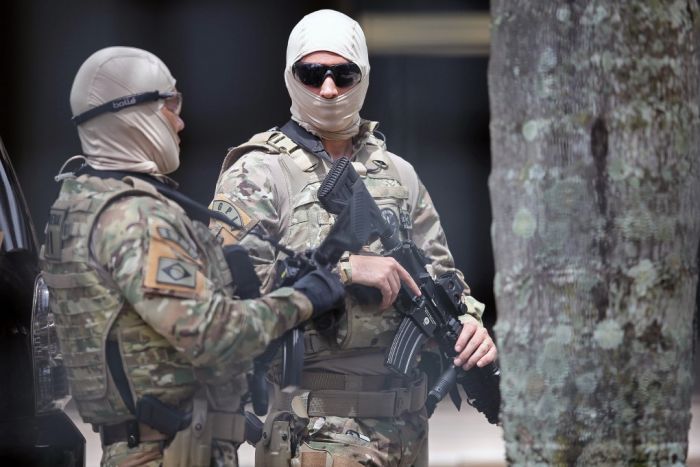Brazil police arrest man said to be one of world's most prolific human traffickers
Brazilian federal police said they have arrested Saifullah Al-Mamun, born in Bangladesh and considered by authorities one of the world’s most prolific human traffickers.
In an operation conducted on Thursday after collaboration with U.S. Immigration and Customs Enforcement (ICE), Brazilian police arrested members of a group allegedly implicated in a large scheme of smuggling people into the United States.
Several arrests were made in Sao Paulo, where Al-Mamun was living, and in three other Brazilian cities. The police also froze 42 bank accounts it says were used by the group to finance their activities.
Al-Mamun entered Brazil six years ago as a refugee and was living in Bras, a diverse neighbourhood in Sao Paulo that is home to immigrants from around the world. He has been indicted on U.S. charges. According to the United States Department of Justice, Al-Mamun is alleged to have housed people coming from Southeast Asia in São Paulo and arranged for their travel through a network of smugglers operating in Peru, Ecuador, Colombia, Panama, Costa Rica, Nicaragua, Honduras, Guatemala and Mexico.
According to Brazilian police, he and his group were smuggling into Brazil, and then to the United States, people from Afghanistan, Bangladesh, India, Nepal and Pakistan. They were sent to Brazil’s northern Acre state to start a long and dangerous trip through Central America all the way to the Mexican border, to cross into the United States.
Reuters was not able to confirm whether Al-Mamun had a lawyer in Sao Paulo who could be contacted for comment.
Brazilian police said the group charged people coming from Asia around 50,000 reais ($12,524) for the attempt to reach the United States. Some would also stay illegally in Brazil, where they were given fraudulent documentation.
Police said people suffered violence while waiting in Sao Paulo to start the trip north. It said a group of eight Bengali people fell into the hands of a Mexican drug cartel while travelling toward the Mexico-U.S. border.

